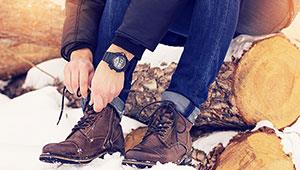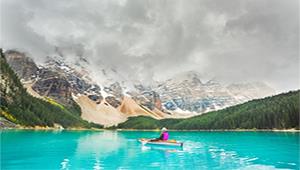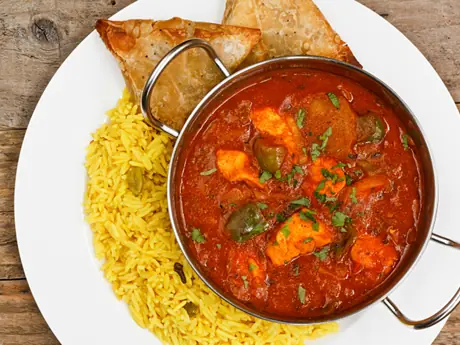The Pacific Coast Trail (PCT) stretches 2665 miles from Mexico to Canada. Even longer than the Appalachian Trail, the PCT meanders through California, Oregon and Washington, and over more than sixty major passes through the Sierra Nevada Mountains and the Cascade Range.
This trail is not only rugged, challenging the hardiest hikers and equestrians, but incredibly scenic as it leads you through six different ecozones (of a total of seven in the U.S.), including deserts, alpine environments and rain forests.
More than a trail, the PCT provides an awesome experience that can fulfill the nature craving of even the most stalwart outdoors enthusiast. The spectacular scenery surrounding the PCT only gets better as it traverses seven national parks, including Yosemite, Crater Lake and Mount Rainier. It also passes through 25 national forests and 33 wilderness areas. The elevation change is unbelievable: from barely above sea level to Forester Pass in the Sierra Nevada Mountains, at 13,153 feet.
The Thru-Hike
If you're tough enough (or foolhardy enough) to consider thru-hiking, meaning to start at one end and hike straight through to the other end, you should know that you would be in a tiny and select band of people. As difficult as climbing Mt. Everest is, more people have actually made that climb than have thru-hiked the PCT. And how many people do you know that can boast about viewing seven national parks in one season?
Eric Ryback is known as the first person to thru-hike this trail in 1970 with an 80-pound pack on his back. He arranged for a total of only five supply points along the entire length; each one included 40 pounds of food, which wasn't always enough to carry him through to the next supply point.
So what did he do when he ran out? He either foraged for natural food along the way or simply went hungry. Now that's what I call endurance! Actually Mother Nature provides quite a lot of natural food if you know what to look for.
Trail Angels
Really wonderful groups of people connected with long-distance trails like the PCT are known as "trail angels." These people voluntarily help hikers on the trail, usually with transportation to the nearest town so they can lay in more supplies or chow down on pizza and beer.
However, one trail angel who's remarkable even in such a remarkable group is Lloyd Gust. In his 80's now, he has been helping PCT hikers for many years, not only providing transport to town, which is near the northern terminus of the trail, but also giving those at the end of their financial ropes free lodging and food.
A PCT thru-hiker himself, Lloyd's command of a number of languages has stood him in good stead when helping hikers who didn't speak English. He has said, "What they really want is a good shower and they need it by that time because they smell." I guess those cold mountain streams are just a little too invigorating to bathe in.
For the Rest of Us
But you don't need to break a sweat: lots of access points are available for those who are content with shorter trips, varying from pleasant little day hikes to longer backpacking adventures.
If you head out to the Pacific Coast Trail, respect the environment and leave it beautiful for others to enjoy. Here are some eco-friendly suggestions:
o Leave natural artifacts where you found them. Don't be tempted to pick flowers or collect rocks.
o Hike in small groups of fewer than six people to avoid disturbing others and reduce the impact of your passing.
o If you must wander off the trail, don't start a new path. Give grasses and twigs a chance to spring back.
o Leave any campsite in pristine condition. Pack out your trash.
Pick, A. (2011, February). The trail angel: Lloyd Gust is a Pacific Coast hiker's best friend. The Source Weekly. Retrieved from http://tsweekly.com/special-sections/special-sections/the-trail-angel-lloyd-gust-is-a-pacific-coast-trail-hikers-best-friend.html








Discuss This Article